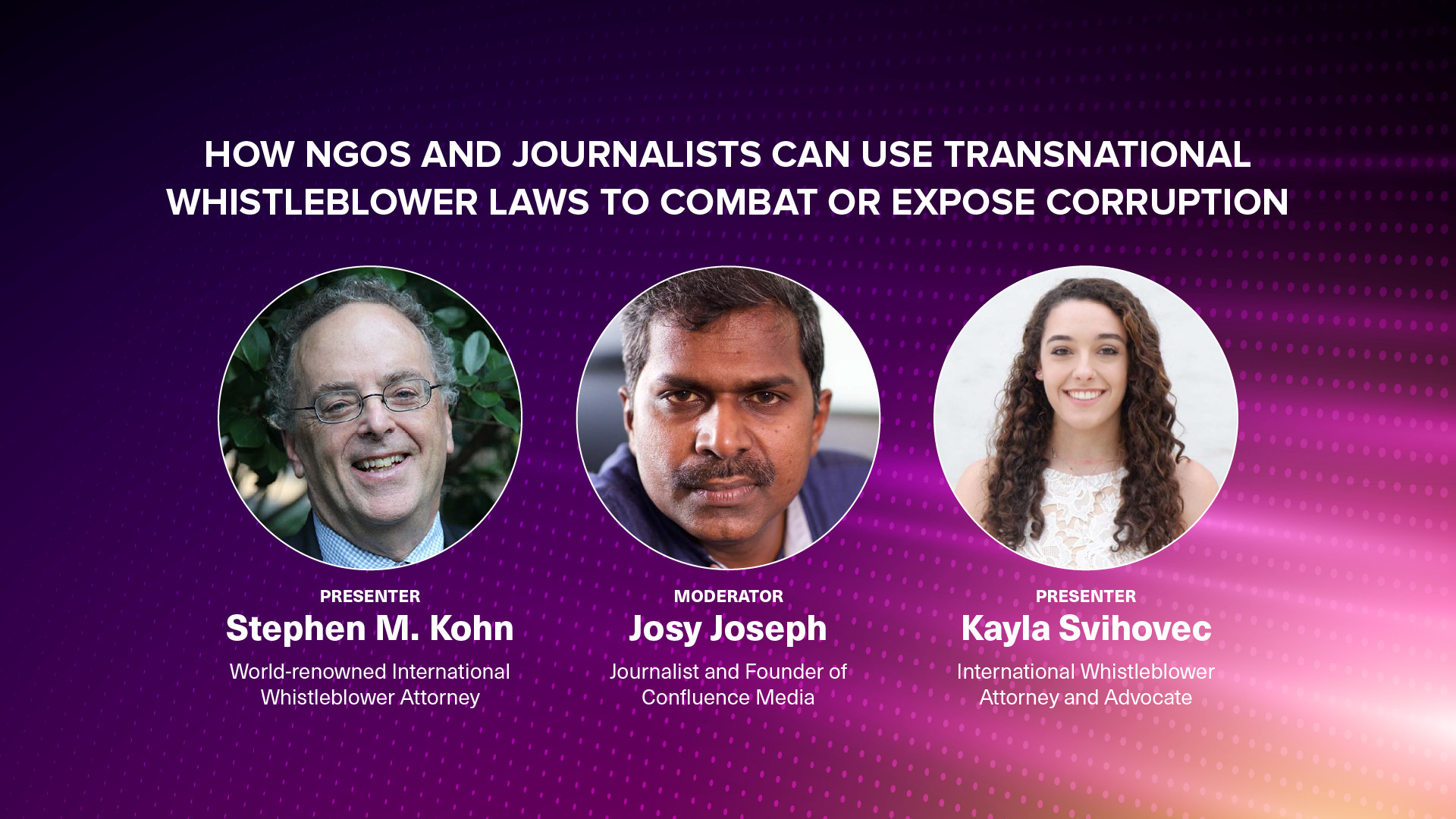May 14, 2025

This information is provided for educational purposes only by Kohn, Kohn & Colapinto and does not constitute legal advice. No attorney-client relationship is created by accessing this content. Laws and regulations may change, and this material may not reflect the most current legal developments. If you believe you have a whistleblower claim, consult a qualified attorney to discuss your specific circumstances.
Passed in 1970, the Bank Secrecy Act (BSA) is a law passed in the United States aimed at fighting money laundering and terrorist financing by requiring financial institutions to report suspicious transactions using a Suspicious Activity Report (SAR) and other unusual activity to the government.
It also requires these institutions to keep records of such transactions exceeding $10,000 and report any suspicious activity that might show money laundering, tax evasion, or other crimes.
In recent years, various regulations and amendments that have come after the Bank Secrecy Act (BSA) have offered further guidance on how these same institutions should follow BSA requirements. One set of regulations, often referred to as Anti-Money Laundering (AML) sets the basic requirements for record keeping, such as clarifying who falls under BSA regulation, the various transactions needing reported, and process for finding suspicious transactions or activity.
In recent years, the AML was improved again by giving the Department of Treasury's Financial Crimes Enforcement Network (FinCEN) the power to reward whistleblowers who have strong information leading to a successful enforcement action. This reward can be up to 30% of the sanctions collected, when those sanctions exceed the minimum requirement of $1 million.
Purpose of the Bank Secrecy Act (BSA)?
The Bank Secrecy Act (BSA) was passed in 1970 to help fight money laundering and terrorist financing, especially after 9/11 when the BSA was significantly amended by the USA PATRIOT Act. It has been tremendously helpful in helping law enforcement track suspicious financial transactions, requiring financial institutions to file Suspicious Activity Reports (SAR) if they suspect money laundering, tax evasion, terrorist financing or other illegal activities in which fraudsters engage in.
Penalties for Violating the Bank Secrecy Act (BSA)
There are many ways to violate the Bank Secrecy Act (BSA), one of those being poor recordkeeping, which may incur civil fines; or the intentional violation of the BSA, such as engaging in money laundering on behalf of a client. Those who engage in the latter can receive heavy fines, and sometimes even imprisonment for their involvement. The severity of the penalty is decided by many factors.
Criminal Penalties
When it comes to illegal activities incurring criminal penalties, such as money laundering, which is often a type of activity that can be used to finance terrorist, Anti-Money Laundering (AML) regulation may come into play, which help put bankers and other financial institutions in check.
For instance, those who help their clients launder money might violate the BSA and AML by willfully engaging in one of the following activities:
Failure to implement an effective AML program: These institutions must have an AML program that includes procedures for finding and reporting suspicious activity, which might include inadequate customer due diligence, transaction monitoring, or risk assessments.
- Failure to file Suspicious Activity Reports (SARs): If a financial institution suspects a transaction might be involved in money laundering or other criminal activity, they must file a suspicious activity report with FinCEN.
- Structuring transactions to evade reporting: Criminals might break down large cash transactions into smaller amounts to avoid triggering mandatory reporting requirements. Financial institutions that knowingly assist with structuring are also in violation of the BSA.
BSA Violations related to Whistleblower Protection:
- Retaliation against whistleblowers: The BSA protects employees who report suspected BSA violations to their employer, the government, or both. Firing, demoting, or otherwise penalizing an employee for whistleblowing is a violation of the BSA.
- Failure to investigate whistleblower reports: When an employee reports a suspected BSA violation, the employer has a legal obligation to investigate the report in good faith. Not investigating can be a violation.
- Impeding communication with authorities: Whistleblowers have the right to report suspected BSA violations directly to the government. Employers cannot restrict or prevent employees from making such reports.
Penalties can be up to $250,000 in fines and 5 years in prison. If part of a pattern of illegal activity exceeding $100,000 in a 12-month period, penalties increase to $500,000- and 10-years imprisonment.
However, in much larger cases involving $1 million or more, which often include a whistleblower, the penalties can be much higher – especially if there is a history of a financial institution violating BSA or AML regulations.
Common Violators
It is important to note that anyone can violate BSA or AML regulations. However, there is a long history of common perpetrators who the Department of Treasury's Financial Crimes Enforcement Network (FinCEN) is keeping a close eye on, which include the following:
- Money Launderers: Those using gaps in BSA and AML compliance to move money from the illegitimate economy to the legitimate economy.
- Terrorists: Terrorists depend on illicit financing to support their operation, which includes laundering money obtained by frauds, extortion, and other schemes.
- Casinos and Money-Services Businesses (MSB): This includes car dealerships, currency exchanges, and other establishments where large sums of money are involved.
- Professionals: Those who work as attorneys, accountants, or in real estate. These individuals are typically exposed to criminals who are using such services to launder money.
- Insiders: This might include someone working at a financial institution who is subject to BSA or AML regulations, who willingly violates them for a client or for themselves, for personal gain.
- Sanctioned Individuals or Countries: Violations includes engaging in (but not showing) trade or financial transactions with parties who pose a threat to U.S. foreign policy and national security, including foreign countries and regimes, narcotics traffickers, terrorists, and proliferation of weapons of mass destruction.
It is also common to see people violating BSA or AML regulations out of sheer ignorance. By not understanding the compliance requirements completely, they unintentionally commit a violation. In a similar fashion, some might just fail to implement a proper compliance program – this lack of controls often leads to violations as well.
Case Examples
Finding specific details about whistleblower involvement in BSA/AML cases can be difficult due to confidentiality. However, there are a few listed here (including a client of ours) that give you a sense of how these violations occur:
- Howard Wilkinson (2018) KKC Client Case: Danske Bank, a Danish financial institution, was embroiled in a massive money laundering scandal involving a $230 billion money laundering scheme flowing through its Estonian branch between 2007 and 2015. The bank allegedly did not implement proper AML controls, allowing suspicious transactions from Russia and other high-risk countries. This case sparked investigations in multiple countries and highlighted the vulnerability of the financial system.
- HSBC Money Laundering Scandal (2012): HSBC, a major global bank, agreed to pay a record $1.9 billion fine for not preventing money laundering by Mexican drug cartels and other illicit actors. This case exposed weaknesses in HSBC’s AML compliance programs and highlighted the importance of BSA regulations in combating financial crime.
- Wachovia Bank (2010)
This is a prominent historical case. Wachovia, a large U. S. bank forfeited a record $160 million for failing to prevent money laundering by Mexican drug cartels. News reports show a whistleblower, a former Wachovia employee, reported suspicious activity internally but their concerns were not addressed. This eventually led them to report to the authorities, triggering an investigation that exposed widespread violations.
Whistleblowing: BSA and AML Violations
Whistleblowers, both U.S. and foreign, can play a crucial role in exposing money laundering activities by ensuring financial institutions follow Bank Secrecy Act (BSA) and Anti-Money Laundering (AML) regulations. These laws are now transnational in scope, with the U.S. collaborating with many countries to share information.
Under the Anti-Money Laundering program, whistleblowers can receive a reward of up to 30% of the monetary sanctions that are collected by the government, provided the sanctions exceed $1 million. Unlike some other whistleblower programs, the AML program guarantees a minimum reward of 10% of the sanctions.
Given the types of individuals and groups involved in large-scale money laundering schemes, whistleblowers may also receive help from anonymous reporting, government protection, and other forms of assistance. Those who report sanctions violations may also be eligible for rewards under the new AML laws.
BSA/AML Whistleblower Seeking Legal Assistance?
Those working in the financial industry, such as bank employees, and members of the public who may have knowledge of illegal activity such as money laundering, are eligible for whistleblower awards under the AML. Also, whistleblowers do not have to be U.S. citizens or be in the U.S. to qualify for AML whistleblower awards.
Our BSA and AML attorneys have worked with some of the most courageous whistleblowers in history, including Howard Wilkinson, the Danske Bank whistleblower who exposed a $230 billion money laundering. Our attorneys have intimate knowledge of whistleblower law as it relates to BSA and AML regulations.
If you would like to speak with one of our attorneys for a free and confidential consultation, please fill out the intake at the bottom of this page. In most cases, our attorneys work on a contingency basis, and only get paid if they win your case.
Our Firm’s Cases

$2 Billion Recovered
Wilkinson blew the whistle on a $230 billion Russian money-laundering scandal that moved rubles out of Russia, converted them to dollars at Danske Bank Estonia Branch, then to moved the dollars to New York. The largest money laundering scandal in history.





